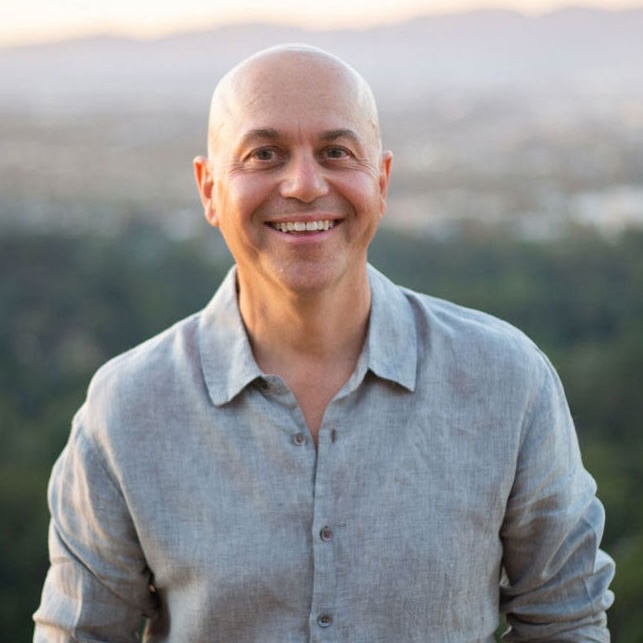"How do I begin?" The process of story creation is mysterious. Where do your story ideas come from? From where do your characters emerge? At their core, stories are born out of an impulse to make …
Hold the Story Loosely
Our idea of the story is never the whole story. The act of writing a novel, memoir, or screenplay is a way of developing a coherent narrative for something that began as a simple idea or image. We are …
Humor Is Not About Writing Funny
Humor connects us. It makes us care. I don’t mean one-liners. Humor is not about jokes, but it is about human behavior. It’s a vital aspect of any story, adding depth, richness, and humanity. Drama …
“Write What You Know” Can Be Misunderstood
Every writer hears the old song: “Write what you know.” This can be misunderstood. The fact is, we don’t write what we know, but rather, we write the nature of our experience. A plumber doesn’t have …
Asking “Why?”
Always keep your ideal reader close by in your mind asking "Why?" Our subconscious is perfectly designed for this process. It already knows the story. Our only job is to remain curious and inquire …
On Writing Dialogue
“If you have a good ear for dialogue, you just can’t help thinking about the way people talk. You’re drawn to it. And the obsessive interest in it forces you to develop it. You almost can’t help …
Developing Your Writing Technique
Technique develops over time. By reading and writing, we absorb a sense of story structure, cadence, and rhythm. We learn how to create and release tension. We deepen our relationship to our …
Writing Tip – How to Show and Tell
"Action is eloquence." - William Shakespeare If we find ourselves editorializing, that is telling or explaining what is happening in our story. It's “OK” . . . however, we probably don't want to …
Humor in Writing
There is nothing less funny than writing about humor. I was a standup comic for years. Every once in a while after a show, some dude would come up to me wanting to discuss my act. I'd cringe while …
Make it Dramatic
“Drama is life with the dull bits cut out.” - Alfred Hitchcock Story moves as the result of complications that arise, not out of plot, but out of character and theme. As our protagonist attempts …
Most popular posts
Hold the Story Loosely
Our idea of the story is never the whole story. The act of writing a novel, memoir, or screenplay is a way of developing a coherent narrative for something that began as a simple idea or image. We are piecing together a series of emotional experiences that lead to a transformation. The plot, the “stuff …
Read MoreWriting Prose
“Prose is architecture, not interior design.” – Ernest Hemingway Our words are in service to our story. When we get too flashy with our adjectives, we may distract and even confuse our reader in ways we might not be aware. In painting, a color is understood in relation to another color. A particular green will mean …
Read MoreHow Do I Begin?
“How do I begin?” The process of story creation is mysterious. Where do your story ideas come from? From where do your characters emerge? At their core, stories are born out of an impulse to make order from chaos. Stories reveal a transformation, a new way of seeing things. For example, notice how we dream …
Read MoreThe 30-Day Outline
The 30-Day Outline is a Live-on-Zoom workshop with Alan Watt that will take you from initial idea to the completion of a solid outline in 5 weeks.

Recent Posts
3 Secrets for Getting Started on Writing Your First Novel
Every writer struggles with getting the story from imagination to the page. The first-time novelist confronts the special challenge of having never done this before. Here are three quick tips to help all you first-time novelists in getting started. 1) Start now. Were you expecting something profound? Try this: you know more than you think …
Read MoreFinding Your Writing Voice
I work with many first-time novelists, screenwriters, and memoirists, and the question of voice always comes up. “Do you think I have a voice?” asks the first-time writer. “Should it be in a different voice?” he wonders, as if voice is something we shop for at the store. “How do I find my voice?” she …
Read MoreWriting Prose
“Prose is architecture, not interior design.” – Ernest Hemingway Our words are in service to our story. When we get too flashy with our adjectives, we may distract and even confuse our reader in ways we might not be aware. In painting, a color is understood in relation to another color. A particular green will mean …
Read MoreShow, Don’t Tell
Show, don’t tell—the mantra of every screenwriting teacher. Film is a visual medium in which behavior reveals character. Novelists and memoirists have the luxury of exploring the internal lives of our characters. This can often be misunderstood, however, as “telling, not showing.” The novice can sometimes become so absorbed in the internal lives of his …
Read MoreOvercoming Self-Doubt
I used to be amazed at the madness of my mind. One day, I think my writing is brilliant, and the next I’m cringing with embarrassment. It’s difficult to have objectivity when we’re in the middle of our story. For first-time novelists it’s particularly challenging because we have no evidence that what we’re doing will …
Read MoreThe Courage to be Specific in Writing
Humans are full of paradoxes. We only love to the extent that we hate. We are constantly changing our minds, constantly renegotiating with ourselves and others. To be specific is to be curious about the truth of the human condition. In Malcolm Gladwell’s The Tipping Point, he talks about how we have a tendency to …
Read MoreJuxtaposition
The rewrite process can sometimes lead us into a rut. Our attempts to make our work as clear and specific as possible can begin to feel routine. So sometimes we need to mix things up and get a little dangerous on the page. David Bowie used to write songs by cutting out words and sticking …
Read MoreWeights & Measures
Proximity Do our characters have to be two thousand miles apart, or three miles apart? If we are trying to convey a sense of distance, remember that distance is relative. Let’s say that our protagonist lives in Los Angeles while her mother lives in Akron. In the first draft, the mother flits in and out …
Read MoreSimplicity
Forward, he cried From the rear And the front ranks died. Pink Floyd (Us and Them) We can tell a whole world in a sentence. The rewrite is where we polish our prose until it gleams. We remove all that does not belong in order to experience what remains. In the rewrite, we ask …
Read MoreStaying Connected to the Source
“To raise new questions, new possibilities, to regard old problems from a new angle, requires creative imagination.” – Albert Einstein The rewrite uses the left and right brain simultaneously. We’re shifting gears between our imagination and our analytical mind. As our story evolves, we begin to see that it’s not precisely the book we’d imagined. …
Read More- « Previous
- 1
- 2
- 3
- Next »






















